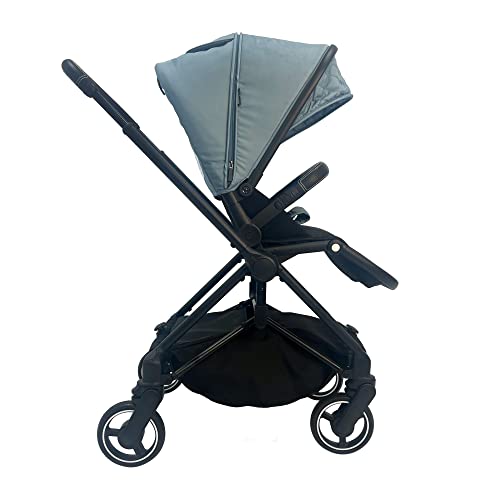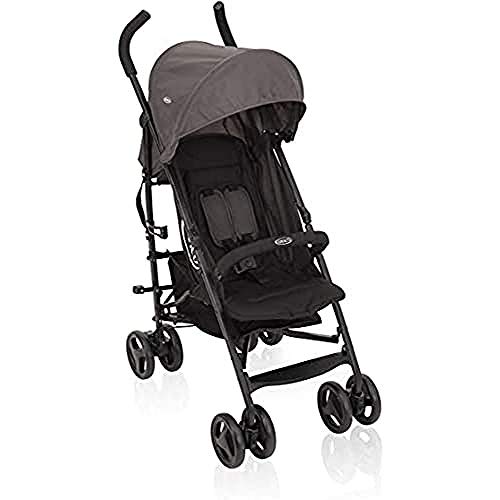What Is Parent Facing Pram And Why Is Everyone Talking About It?
페이지 정보

본문
 Monitor Your Little One's Wellbeing With a Parent Facing Pram
Monitor Your Little One's Wellbeing With a Parent Facing Pram You can easily check your child's wellbeing and comfort when they're snuggled in a pram that is positioned with the parent. This is especially useful during busy times.
You can easily check your child's wellbeing and comfort when they're snuggled in a pram that is positioned with the parent. This is especially useful during busy times.University of Dundee study found that children in buggies with faces had more fun, chatted twice as often and had lower heart rates which are all signs of less stress.
Peace of Mind
A pram with a parent's face is a great way to protect your baby's security. They will be kept in a safe seat that is securely fastened with the five-point harness, making them protected from any accidents that could occur when they are out and about.
A quality pram has an ample basket that can be able to hold all the baby's necessities and you won't have to worry about where all the extra items will go. It is also essential to have the appropriate accessories to keep your child at ease on their journey. For instance, a footmuff that is compatible with a five-point harness and a lining for the pram to shield your child from the rain or sun.
When selecting a pushchair to your new addition it is essential to test drive it to determine the best model for your child and you. Models that have swivel wheels for easy maneuverability, and adjustable handlebars make it easier for everyone in the family to operate.
A safety harness is vital for parents who are concerned about their child falling out of the buggy. It will prevent your child from leaving the seat and is an excellent method to keep them safe in the event there is an emergency.
It's important to note that some baby experts recommend that babies are around six months old prior to using an infant stroller with a front view but this is due to individual developmental milestones. But, some babies will be ready to enter the world earlier, particularly those who are curious and eager to explore the world around them.
Parents may worry that their child will develop a flat spot on the back of their head if they spend time in a pram with their backs to them, but there is no need to be concerned. Auckland osteopath Julia Griffiths says that babies should spend a lot more time lying flat to strengthen their skull muscles. This can be accomplished by using a parent-facing carrier and the supervision of tummy time.
Enhanced Bonding
It is crucial to think about the direction your baby is facing when they are out and about, regardless of whether you are using a pram or pushchair. It might seem like a small detail but it can have a huge impact on your little one's development and interaction with you whilst out and out and about.
A new study has found that infants who sit in buggies facing away from their parents are less likely to engage, talk or laugh with them than children who choose a pushchair facing the parent. The study surveyed 272 children and their mothers in 60 towns and an additional study of 20 mothers and their infants. The study showed that babies who sat in a pram facing their parents were twice more likely to smile as those who sat in a buggy facing away. The reason for this is that when your baby can see you they are more engaged and eager to share the experience with you, encouraging bonding and conversation.
Babies have so much to discover about the world around them, and facing one another while doing it can help them develop and build bonds. You can also point out items to them like flowers playgrounds, buses, and other things that they might not otherwise notice.
It is crucial to remember that your baby must be able sit up independently before you turn it into a pushchair that faces forward. Babies who are older than this may struggle to adjust and might be more distressed because they have to shift from an inward to outward position.
The best way to be sure your baby is ready for the transition is to test them by a doctor. They will be able to verify that your child's muscles and bones are strong enough to take on it, and make sure they have not developed any hyper-sensitive spots. This test is particularly important if you have used the pushchair since the birth of your child, or have previously had an away-facing pram and car seat. A health professional can also guide you on when it's safe for your child use an infant twin pushchair that faces forward.
Better Eye Contact
The ability to make eye contact with your child is one of the best features of a stroller that faces you. This is especially crucial for infants and newborns, as they are still learning about the world around them. It's also an opportunity to talk to them and play with them which helps them to learn the names of the objects they see and boosts their development in language.
According to studies, babies who look at their parents are more likely to laugh and talk to them than those who turn away. This is due to them absorbing the sounds and visuals of their surroundings and are able to comprehend what's going on around them. Eye contact also makes it easier for parents and children to communicate. This helps soothe the infant and allow him to calm down.
It's also an excellent idea to take along a toy for travel for your child to play with when they're in their pushchair. These toys are ideal for stimulating the mind and making children smile. They can also help your child recognize your voice, which is crucial for their cognitive development.
Babies love looking at the world around them and exploring the world around them. As they grow older and more active, they may be able to sit forward in their pushchair. If this is the case, it's worth thinking about buying a front-facing pram or stroller from our range.
It's recommended to add a footmuff after switching to a pushchair facing forward. This will keep your baby warm. Choose a style that can be removed and attached removed as required and is compatible with your baby's car seat or crib. It's also an excellent idea to purchase an item with a distinct design that will let your child recognize their triple pram when out and about.
An excellent way to make sure that your baby's position for pushing is correct and that they're comfortable is to check their head and neck alignment frequently. If the front of their pushchair is tilted forward, their head and neck will be pushed against it which isn't a good idea.
Easier Monitoring
You can observe your baby better with the reassuring view of their face when they are in a pram facing you. You can determine if your baby is asleep or is upset or cold. You can also see whether their hat or socks are missing. You can also talk to a baby more comfortably when they are right in the front of you. They can see you and hear your voice.
This is particularly crucial for toddlers and babies who have language and speech issues because it stimulates them. It's also a great way to teach them about the world around them, like when you show them busses or flowers. You can also sing to them, especially in the event that you know they like singing!
Many children love to talk to their parents when they are facing and there are plenty of studies that demonstrate this. This study by Dundee University, for example found that babies spoke twice as much in a pushchair that was facing forward than those facing rearward. The same study also found that babies who's faces were not visible to their parents displayed more fluctuations in their heart rate, suggesting that they were anxious and stressed. Babies who's faces were visible to them on the other hand were able to have heart rates that were more stable and relaxed.
This does not mean that every child must be switched to a forward-facing pram immediately. It is recommended to wait until your child is six months old. At this age, it is the time that their muscles and bones have fully developed to enable them to safely undergo the change.
Because of this, many parents choose to keep their babies in a twin stroller with a parent-facing seat until then. Luckily, there are some excellent strollers and Prams Pushchairs Prams out available that allow you to change between two directions to keep your baby or toddler facing the parent for the time you need. Just remember to check the compatibility of your chosen buggy or stroller with the car seat you're going to use, as the compatibility can vary among models.
- 이전글16 Must-Follow Pages On Facebook For Love Doll Realistic-Related Businesses 24.10.28
- 다음글The Best Pushchair Newborn That Gurus Use Three Things 24.10.28
댓글목록
등록된 댓글이 없습니다.

